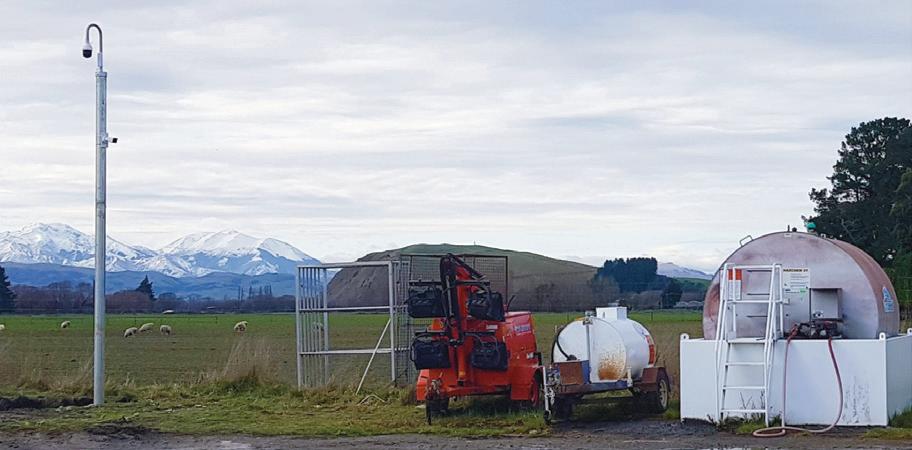
2 minute read
Getting your cow her A–Z’s
by Ruralco
Understanding the mineral and vitamin requirements of transition cows.
The transition period of a dairy cow is defined as the period three weeks pre-calving, to three weeks post-calving. It is the most important period of the season, as the management of transition has direct impact on cow health, milk production, reproductive performance and environment sustainability. It is crucial to provide nutritional support to achieve success. The supplementation of macro minerals, trace elements and vitamins throughout the transition period is part of this process
Advertisement
Magnesium
Magnesium (Mg) plays a fundamental role throughout the entire season; however, it is arguably most important pre-calving. The main role of Mg pre-calving is to aid in the mobilisation of calcium from the bones, to support lactation and prevent hypocalcaemia (milk fever). This interaction is important because milk fever is considered the ‘gateway disease’ to many other potential issues1 . If a magnesium deficiency occurs, there is an increased risk of milk fever, which may lead to other diseases, including ketosis, mastitis and/or retained foetal membrane. Additionally, there are longer term costs associated, due to an impacted immune system, reduced milk yield, and compromised reproductive performance. A close-up dry cow requires 0.45% of their dry matter intake as elemental Mg 2. For example, a 500kg cow, eating 9–10kg of dry matter, requires 40–45g per day of elemental Mg.
Trace Elements
Copper (Cu), zinc (Zn) and selenium (Se) all play key roles in immune function, reproduction, and milk production 1. They are especially important pre-calving as this is when the cow is under the most stress, and therefore her immune system is under the most pressure. • Cu is required for many roles in the body, and has an impact on milk production, immunity, fertility and calf viability—it is a very busy element. • Se is an antioxidant, used by the body to prevent oxidative stress, and boost immunity. • Zn plays a role in soft tissue health, and can aid in udder and teat health, and hoof hardness.
Vitamins
Vitamins D and E are fat-soluble vitamins that are essential nutrients for all dairy cows, especially transition cows. Vitamin E and selenium work closely together as antioxidants to boost immunity. Vitamin D plays a vital role in the regulation of calcium mobilisation, and therefore mitigating milk fever3 . Supplementation
Supplementing all the required minerals and vitamins in spring can be complicated and time consuming, at a time of year that is already stressful. SealesWinslow Calver Maxx block can help. Providing two Calver Maxx blocks per 50 cows in your transition mobs, will supply cows with highly digestible sugar, aiding fibre digestion. The molasses also acts as a tasty carrier for supplemental magnesium, trace elements and vitamins to balance a typical transition diet. To be sure of the nutrient balance on farm, extended feed testing on all forages is encouraged. For more information on how the SealesWinslow Calver Maxx Block may fit your system, talk with your local SealesWinslow TSR, Ruralco Representative or visit a Ruralco store.
THIS PROMOTIONAL FEATURE WAS PROVIDED BY SEALES WINSLOW 1 Lean, I and DeGracis, P. Transition cow management. [prod.] Dairy Australia. 2010. 2 Lean I and DeGaris, P. Transition Cow Management. A techincal review for nutritional professionals, veterinarians and farm advisers. [prod.] Dairy Australia. 2021. 3 Dairy Australia. Feeding Dairy Cows 5th Edition. 2015.










